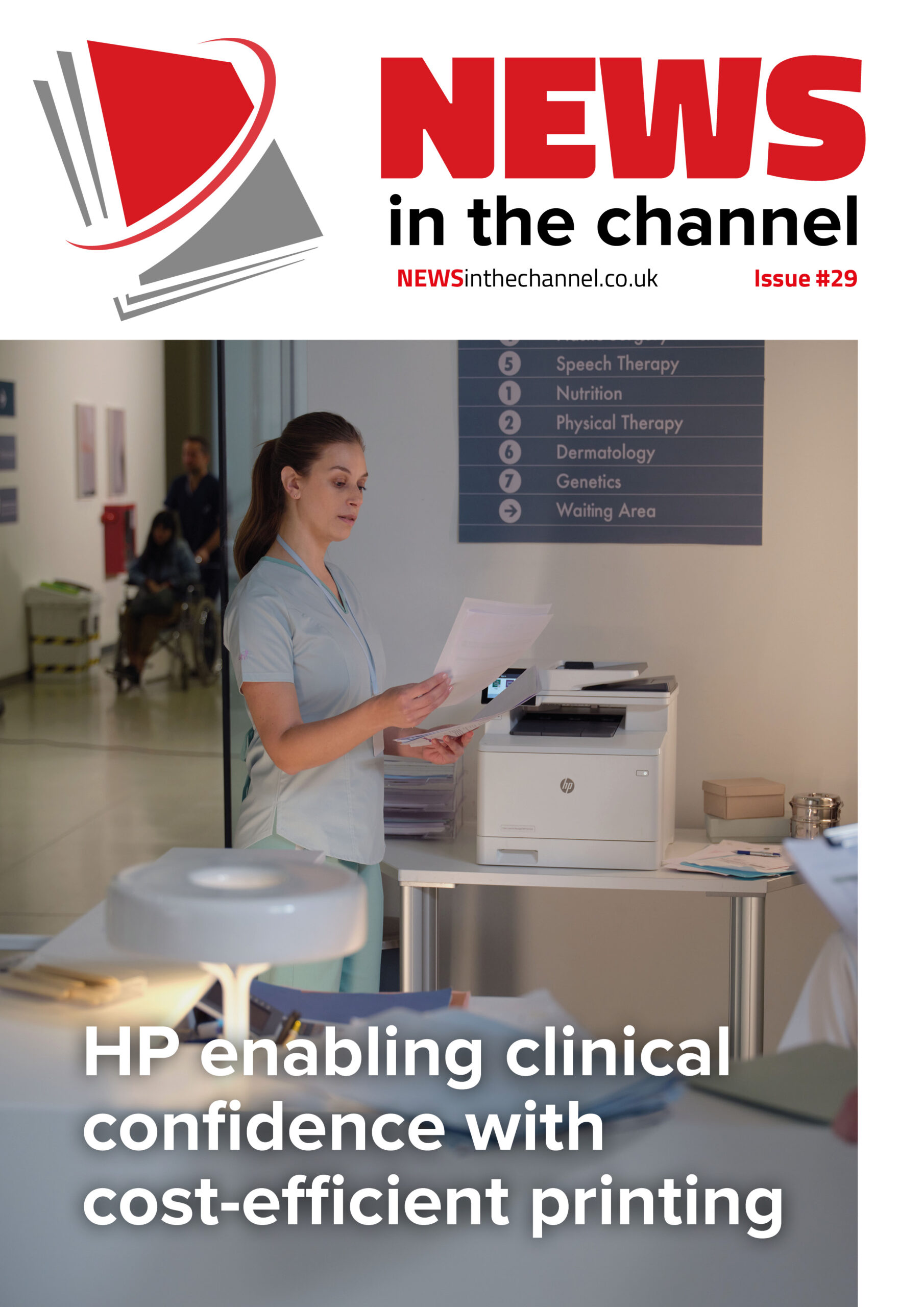Demand for Software-as-a-Service solutions are growing among small- to medium-sized businesses and as technology advances demand is only set to grow for the foreseeable future – which provides opportunities for resellers.
For many small- and medium-sized businesses (SMBs) digitalisation is an ongoing process, but many are looking towards solutions that can help them become more efficient. To this end, many are now looking at Software-as-a-Service (SaaS) solutions to achieve this.
“We’ve definitely found that the demand for SaaS is growing among SMBs,” says Joe Tully, marketing manager at Adventoris. “This growth is down to a range of factors including cost-effectiveness, scalability and flexibility. Also many SaaS solutions now offer easy integration with other business tools and services such as enterprise resource planning systems, streamlining operations and improving efficiency across the board. What’s not to love?”
Anthony Dobson, regional director, sales for Arrow’s enterprise computing solutions business in the UK&I, agrees, adding that it is the inherent flexibility of SaaS that is so attractive to SMBs. “It allows them to scale resources according to their needs, without the substantial upfront investment in hardware and software infrastructure needed for these types of solutions,” he says.
“User-friendly, secure and easy integration are the key qualities that SMBs are looking for in their SaaS solutions. Interoperability with existing applications and platforms such as their CRM are important. To minimise the risk to their organisations, SMBs are also looking for solutions that address compliance while ensuring they are always protected by the latest security solutions.”
Chris Shaw, UKI&SA country channel manager at AvePoint, adds that SaaS is in high demand for SMBs because it allows them to do more with less. “They can pay and scale as they go to be more agile in their go to market plans,” he says.
“As access to technology has become easier, we’re finding a willingness to embrace it and see if the proof is really in the pudding. CoPilot for Microsoft 365 is a great example of this – because there are tangible, quick impact use-cases, organisations of all sizes and industries want to invest.”
Paul O’Riordan, VP and head of medium business UKI at Sage, adds that demand is growing in sectors such as ERP/financials, HR and payroll. “This surge is driven by the flexibility, scalability and cost-effectiveness,” he says. “These solutions help SMBs operate more efficiently and reduce IT costs without large upfront investments. Additionally, the shift towards remote work and digital transformation is fuelling this growth, allowing SMBs to manage operations from anywhere, enhancing agility and responsiveness.”
Impact of hybrid
Joe notes that there is increased adoption of SaaS solutions due to the shift to more remote and hybrid work. “This is driving demand for collaboration tools, project management software and communication platforms,” he says.
“With our SwiftCloud customers, this shift to more remote or hybrid working formats has certainly impacted how B2B sales are completed. Traditionally, a lot of businesses would rely on physical, on-site visits to place orders, but this is becoming less of a ‘norm’ as more and more SMBs opt for digital methods.
“A very timely point, considering the recent Microsoft and Crowdstrike outages, but a huge requirement for SMBs is security and reliability. Business leaders need to ensure that their teams can continue to work effectively despite outside factors, such as conflict overseas impacting supply chains, and reduce any downtime. Most SaaS solutions have robust data security in place from expert teams to ensure peace of mind.”
Changing expectations
But as SaaS matures in the market and more SMBs implement solutions, so the expectations of customers are changing too.
“There is a growing demand for industry-specific SaaS solutions that offer features and functionalities to meet niche needs; this is something that we are always working with clients to achieve,” says Joe.
Paul agrees that SMBs are now seeking SaaS solutions tailored to their industries. “Customers also want a long-term relationship where they know that the SaaS provider is to support them consistently over time,” he says. “Additionally, there’s a growing interest in AI and automation to streamline operations and improve customer experiences. According to research, SMBs value digital agility for growth, scalability and competitiveness, showing their evolving expectations as they adopt new technologies.”
Mike Barron, UK managing director, SYNAXON, adds: “SaaS, of course, is not new anymore – it’s already the way many SMBs and larger organisations deploy and manage all apps and services,” he says. “As SaaS matures, user expectations are increasing. They expect services to be secure, responsive and always available, and they want to be sure that someone is monitoring and managing their services and keeping them protected and up to date.
“For a lot of partners, it makes sense to work with an established supplier of managed services like SYNAXON to offer core SaaS services, such as managed endpoint security and antivirus. We can also help partners with project deployment. This is especially attractive for smaller SMB partners that don’t have a lot of resources to invest in setting up their own managed services operation. If they work with us, there is no set-up cost or need to employ technical staff to run their own services.”
Simon Bennett, managing director – Advanced Solutions, UK and Ireland, TD SYNNEX, adds that while the initial requirements of customers have not really changed, they do mature over time.
“All organisations want to make certain that their information is fully secure and as they use more cloud resources, they want to make sure that they are getting the best value,” he says. “This puts the onus back on partners, who need to be confident in providing advice on how to ensure services are protected and that the customer is using the best platform for their particular needs.”
Reseller role
Indeed, partners and resellers have a key role in helping customers to get the most out of their SaaS solutions.
“We’ve found that as customer usage increases, partners are seeking out more education and technical assistance on software and cloud services,” says Simon. “We’re seeing more engagement and enrolment on vendor-specific programmes for the major hypervisors.
“Reseller partners are already playing a key role in advising customers on SaaS and cloud services and as customer usage grows, the partner gets more involved in helping them build and develop their approach. Customer needs will continue to change, and partners will also need to keep their skills and capabilities up to date as technologies advance.
“As a result, the greater interdependency between the SMB customer and partners that we’ve seen because of higher levels of cloud adoption will continue. The opportunities for partners to grow their SaaS and cloud revenues will also continue to grow.”
Chris adds that resellers can influence and direct customers – but they need to have a clear message to take to market to do so. “That’s where vendors can help to give them clear guidance on state of market first!” he says. “Then, they can take those threads and cut through the noise to deliver a real solution to the market.
“The main goal of any SaaS solution is to make the lives of SMBs easier. Today, SMBs use many productivity tools, so to ensure they are all running smoothly and protected, they need one source of truth in their SaaS solution to provide those offerings.”
Paul adds that resellers, as trusted advisors, are crucial for helping SMBs find the right SaaS solutions. “Also assisting with implementation and customisation, bridging the gap between technology and business needs,” he says. “Moreover, resellers offer additional capabilities through the intellectual property they have developed themselves and/or via third party marketplace solutions. Resellers are also shifting to advisory roles – 63% of channel partners are motivated to transition to an advisory roles because of their desire to build stronger relationships with customers.”
Anthony adds that distributors like Arrow are important to bridge the gap between resellers, SaaS providers and SMB customers. “Distributors provide the expertise and help to navigate the SaaS solutions that best meet the unique requirements of SMBs,” he says. “Platforms such as ArrowSphere Cloud make it easier for resellers to customise, provision and manage the full SaaS lifecycle. Ongoing support and training also ensure that SMBs can make the most of their SaaS investments.”
Components of solutions
But what should go into an ideal SaaS solution for a SMB? There are various facets that should be included, according to Joe.
“A SaaS sales solution for SMBs should include a user-friendly interface, competitive pricing with flexible payment options, scalability to grow with the business, strong security measures, accessible and responsive customer support, customisation and integration options, and high performance and reliability to ensure business continuity and efficiency,” he says. “SaaS solution providers should work with a business to improve their systems and increase productivity as well as making it easier and more attractive for end users to engage with and buy from the company.”
Paul notes that a good SaaS solution for SMBs should be: “scalable, affordable, user-friendly, secure and backed by strong customer support.
“Important features include real-time data analytics, mobile access and automatic updates. It’s also essential that the solution has a strong vision for the future, provided by a vendor committed to continuous innovation. That commitment will ensure that the SaaS solution will evolve with the latest advancements and continue to grow and scale with the evolving needs of SMBs.”
Security concerns
Security is also a key aspect of any SaaS solution. Stephen Green, sales director in EMEA at Netwrix, says that as technology aggregators, resellers are ideally positioned to capitalise on this trend for increasing demand for SaaS solutions. “According to a recent Netwrix report, 79% of organisations suffered a cyberattack within the last 12 months, compared to 68% in 2023,” he notes.
“This increasing frequency of cyberattacks has made cybersecurity a top priority for businesses of all sizes, including SMBs. Most SaaS solutions can be deployed quickly and are simple to scale up or down, allowing SMBs to address security threats promptly with lower upfront costs and predictable monthly payments. Many SaaS cybersecurity solutions require minimal IT expertise to implement and manage. Most SaaS providers also offer technical support and updates, freeing SMBs from the burden of managing complex security infrastructure and allowing them to focus on growing their business.
“However, this growth in demand for SaaS-based solutions doesn’t mean a decrease in on-premises security solutions. While SaaS provides a suitable solution for some SMBs due to its ease of implementation and use, other organisations prefer to opt for broader functionality, customisation and integrations with other products usually provided by on-premises solutions.
“As the cybersecurity landscape for SMBs is rapidly evolving, several requirements for SaaS security solutions are emerging. Beyond protection, SMBs are now seeking solutions that can detect and respond to threats proactively. This includes features like advanced threat protection, incident response capabilities and security information and event management platform integration. As regulatory landscapes become more complex, SMBs need solutions that help them meet compliance standards efficiently. This includes features like automated reporting and audit trails. There is also a growing emphasis on building a proactive security posture. SMBs are looking for solutions that offer vulnerability assessments, risk management and security awareness training.”
Future
It is expected that demand for SaaS solutions for SMBs will increase in the next 12-24 months. “SMBs’ interest in adopting SaaS solutions will only continue to grow,” says Joe. “The improved efficiency, increased sales potential and opportunities to engage with customers in a quicker and easier way are already having such a positive impact for SMBs, we don’t see this slowing down.”
Ritchie Butters, EMEA business director at 8×8, adds that demand for SaaS offerings and products is only going to go up, because less than 50% of the SMB market has moved to the cloud. “So, there’s a considerable number of organisations who still have to modernise and upgrade away from legacy platforms,” he says.
“This is still a period of incredible opportunity for resellers. Not only because so much of the market has still to move to the cloud. Add in factors like the delayed PSTN switch-off, there’s considerable scope and opportunity. The market’s going to continue to grow. The unknown factor is in wondering who will be here, because you’re seeing considerable consolidation among companies and organisations.”
Chris also expects demand to increase. “The SaaS space is constantly growing in tandem with AI innovation,” he says. “There is so much you can do in a flexible, easy to navigate channel across both resale and MSP models.”
Paul points to research by Sage in 2023 that showed that 68% of UK SMBs are confident about their success in 2024. Additionally 73% of IT resellers believe SMBs prioritise investing in digital agility to drive business growth (29%) enhance competitiveness (24%), and increase efficiency (23%). “These positive indicators suggest that the SaaS market is not just poised for growth but is at the beginning of a significant expansion journey,” he says.
“The potential is significant and we’re only just scratching the surface of what’s to come. The sector is on an upward trajectory, driven by digital transformation, remote work needs, and advancements in AI and machine learning, with a massive potential to revolutionise how SMBs thrive and operate in the digital age.”











